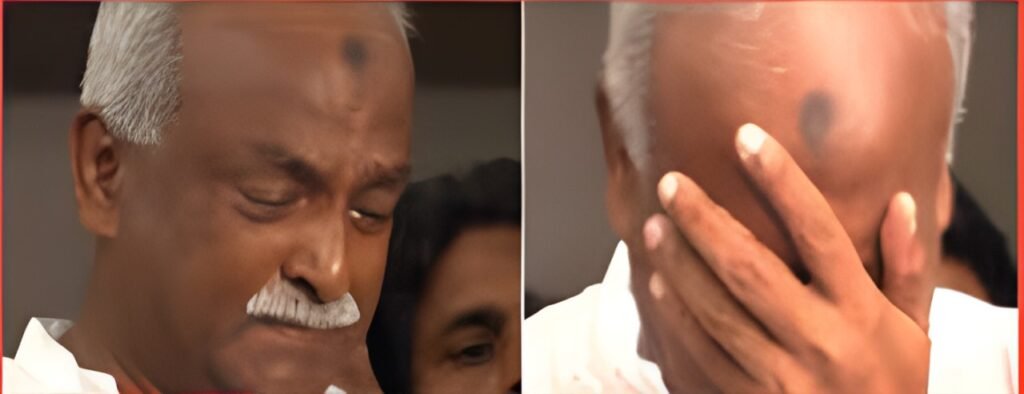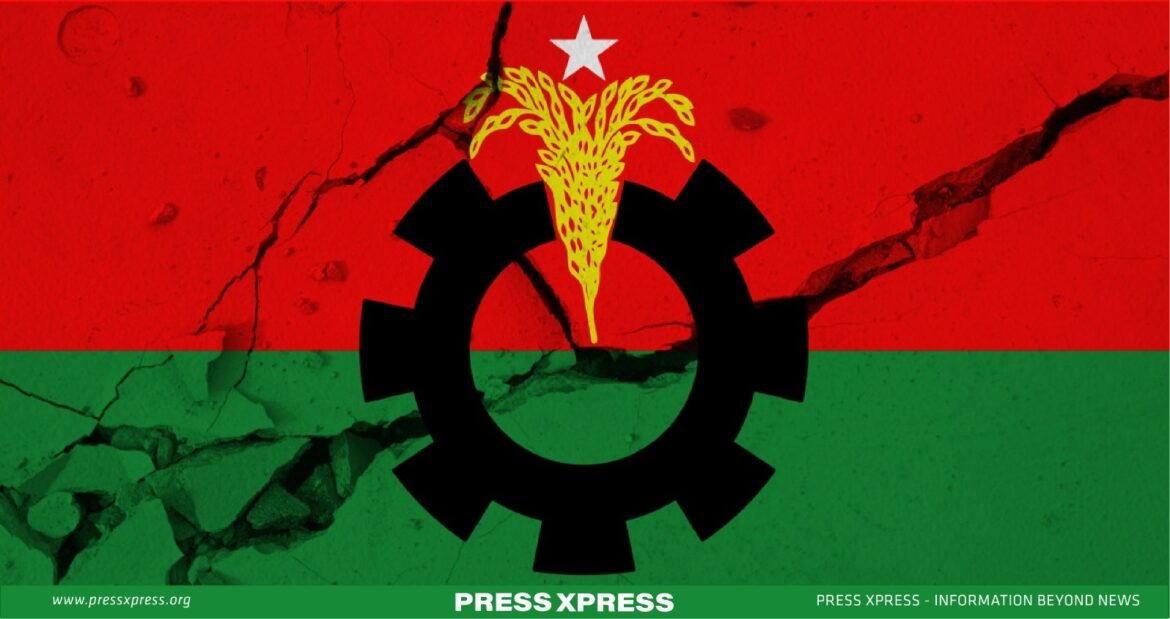“Tarique Rahman treats leaders of the party as his mere slaves. To him only sycophants and those who licks his boots are given preference while he even does not show due respect to those leaders who are in the party for decades.”
Major (Retd)Hafiz Uddin Ahmed, BNP Vice Chairman
The upcoming election sees the participation of 30 former MPs, including 15 central leaders of the BNP. This contingent comprises eight central and seven district-level leaders, whose departure has created significant waves within the BNP, causing a noteworthy shift in its leadership landscape. Among the prominent figures exiting the party are BNP Vice Chairman Shahjahan Omar, Chairperson’s Advisory Council Member Syed AK Ekramuzzaman, Weaver Affairs Assistant Secretary Rabeya Siraj, and Executive Committee members Mohammad Abu Zafar, Shah Shaheed Sarwar, Matiur Rahman Montu, Khandkar Ahsan Habib, and AKM Fakhrul Islam.
You Can Also Read: Dhaka DC Office Attacked as BNP Atrocity Continues
This exodus extends to seven other influential leaders, leaving voids in their respective roles. Notable departures include Zayedur Rashid Shyamal, former Assistant Office Secretary of the Sherpur District unit BNP, and Advocate M Abdullah, a member of the same unit. Abdul Aziz, representing the Panchagarh District unit BNP, and Mahbubul Hasan, a Member in Jamalpur’s Dewanganj Upazila unit BNP, further contribute to the list of departing figures.
Dewan Nazim Uddin Manju, former President of the Dhaka Dhamrai Municipal unit BNP, and Mohammad Abdul Matin, the former Joint Convener of the Chapainawabganj unit BNP, add to the shift. Advocate Hossain Reza Babu, a Member of the Jamalpur District unit BNP, completes the group of leaders choosing a different path.
This mass departure raises questions about the internal dynamics and cohesion within the BNP. The absence of these central and district-level leaders undoubtedly impacts the party’s strategic direction and regional representation. The BNP now faces the challenge of not only filling these leadership gaps but also addressing the underlying issues that may have contributed to this significant reshuffling.
Historic Precedence
BNP’s history is mired with departures. The pattern became prominent after Tarique Rahman became the de-facto decision maker within the party. The conflict between Tarique and senior party members came to highlight first in June 2002, when the then President of Bangladesh and the founding secretary-general of BNP, AQM Badrudozza Chowdhury, was forced to resign from the presidency and kicked out the party. To this day, rumors persist that he was “chased across train tacks” by BNP members. Chowdhury went on to form his own party with his son Mahi B. Chowdhury (also a prominent BNP leader at that point) and BNP defectors, notably, M A Mannan.
Three main reasons have been identified as the primary reasons behind the mass exodos of BNP leaders. Tarique Rahman’s autocratic and repressive decision making, the mistreatment of dedicated leaders and risk of losing relevance.
Tarique’s Megalomania and Detachment
Tarique’s pervasive influence within the BNP has long been a source of internal strife and dissatisfaction among the party’s leadership. Accusations of megalomania have consistently shadowed him, portraying a figure who is not only autocratic but also resolute and unyielding in his decision-making approach. This unilateral decision-making has, in turn, sparked frequent tensions among the committed and seasoned leaders within the BNP.
Unlike the party veterans who have actively engaged in grassroots politics, Tarique’s notable absence from such endeavors when he was in Bangladesh has created a noticeable disconnect between him and the harsh realities on the ground. This detachment has become a breeding ground for skepticism regarding his understanding of the actual challenges faced by the party at the grassroots level.
Open Opposition
This combination of megalomania and egotistical singlemindedness led to the departure of many BNP leaders across the years. Freedom fighter, current vice chairman of BNP and former Minister of Water Resources, during BNP’s time in power, Major (Retd) Hafiz Uddin Ahmed was recently quoted saying “Tarique Rahman treats leaders of the party as his mere slaves. To him only sycophants and those who licks his boots are given preference while he even does not show due respect to those leaders who are in the party for decades.” He was further quoted saying, “only those without any sense of dignity and self-esteem can continue in BNP’s politics. Tarique Rahman has been imposing his disastrous decisions and suicidal politics on those leaders. No one dares uttering a word against such unacceptable behavior of Tarique”.
In essence, Tarique’s actions serve as a poignant reflection of the underlying discontent and schisms within the party’s internal dynamics. The open criticism by the current vice-chairman of the BNP against Tarique not only underscores the depth of dissent but also signifies a prevailing sentiment of “no-confidence” in Tarique’s leadership mindset. This clash of perspectives and the growing divergence in the party’s ranks manifest a deeper crisis that extends beyond individual opinions.
Historical Neglect
BNP has a history of neglecting dedicated leaders. Its failure to rewards dedicated leaders and promote “yes men” has created an aura of frustration and anger within the party. As a consequence, veteran leaders have often left the party throughout its history. These departures have had seismic consequences. Nazmul Huda is a case in point in this regard.

Trinamool BNP was formed when Huda, a founding member of BNP and former MP, left the party. He did so out of disenchantment from the party politics and Tarique’s aforementioned policies. While Trinamoool BNP did not take of initially due to Huda’s sudden death; the party today has become a refuge and platform for pacifist BNP leaders who do not subscribe to BNP’s current violent ideology.
Taimur Alam Khandakar, former convener of BNP and adviser to Khaleda Zia. Defied the party decision and joined the Narayanganj city corporation election. His dedication to democratic inclusivity was rewarded with expulsion from BNP. He is today the Secretary General of Trinamool BNP. Similar cases are common in BNP’s history and paints a picture of neglect, abuse, disrespect and insult.
Risk of Losing Relevance
BNP is at a risk of becoming irrelevant. On orders from Tarique Rahman, the MP’s that won seats in the last election resigned on December 2022. As a result, BNP now is a party that has no representation within the parliament. It means that they cannot voice the concerns to the ruling government in a common forum. Equally important is the psychological factor, a party that has no parliamentary presence is a party that cannot represent the people because they have become irrelevant. Many BNP leaders realize this dilemma and have decided to contest the polls by joining parties like Trinamool or by contesting as independents.
The Future of BNP on the Line
Abraham Lincoln, once quoted, “A house divided cannot stand” underscore the importance of unity. This statement is proven as truth by BNP’s recent dilemma. Its Veterans have already left or are leaving, its leadership is in the hands of a megalomaniac and its campaign of terror has been rejected by the public as well as many members within its own party. BNP is, essentially, a house divided and is crumbling from within. In order not to disappear into irrelevance, BNP now must find a path that resonates with the people of the country and fosters peaceful democracy and inclusivity.


